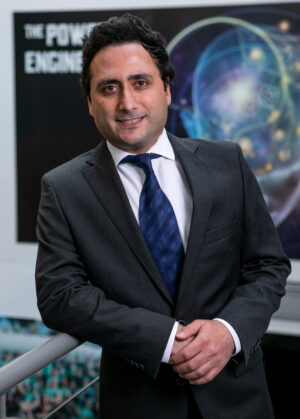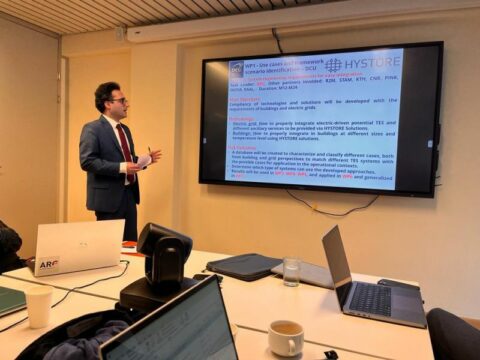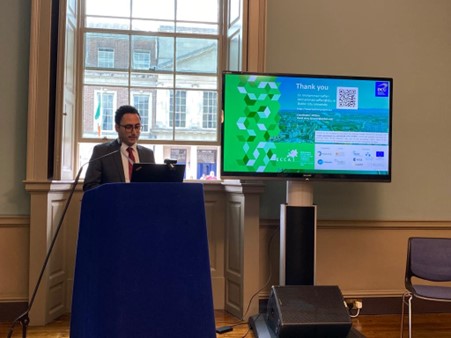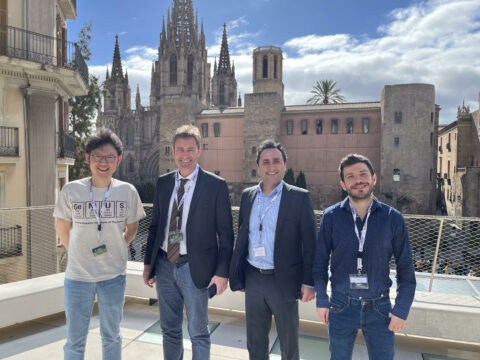HYSTORE presents Dr. Mohammad Saffari:
Expert in Stakeholder Engagement and Optimisation in the Energy and Sustainability Sector
Thermal Energy Storage (TES) plays a vital role in creating a sustainable energy future. By balancing fluctuations in renewable energy sources and reducing reliance on fossil fuels, TES improves system reliability, cuts costs, and enhances efficiency. Innovations in TES, particularly scalable and cost-effective solutions, are essential for its wider adoption. Projects like HYSTORE are at the forefront, testing and refining TES technologies across various climates to ensure their effectiveness and replicability. TES is integral to optimising renewable energy use and achieving a sustainable energy future.
To achieve these goals, stakeholder engagement is critical. Engaging stakeholders provides valuable insights to establish essential requirements and performance metrics, ensuring the project effectively meets its objectives. Additionally, optimizing energy systems to make them more cost-effective is a key focus of the project.
Meet Dr. Mohammad Saffari from Dublin City University (DCU)
Dr. Mohammad Saffari is an Assistant Professor at Dublin City University’s School of Mechanical and Manufacturing Engineering. He specialises in smart, energy-efficient buildings with a strong focus on sustainability and renewable energy. Dr. Saffari’s research employs simulation and optimisation techniques to evaluate the effectiveness of TES materials and systems in conserving energy.

Setting KPIs for TES Technologies
The HYSTORE project aims to enhance building energy efficiency and reliability by integrating advanced Thermal Energy Storage (TES) solutions. This integration allows for better management of energy demand and increased utilization of renewable sources such as solar and wind energy.
To assess the effectiveness of these solutions, Dr. Saffari and his team at DCU established specific requirements and Key Performance Indicators (KPIs) tailored for the project’s TES technologies. These KPIs are critical metrics for evaluating performance across three primary areas: technology, energy efficiency, and economic impact.
The team also tests and monitors TES technologies in real-world conditions, analysing performance data to refine these solutions further. Additionally, they design tools and platforms to integrate and optimise TES technology, developing methods for creating more efficient energy systems.
Developing KPIs Through Stakeholder Engagement
Dr. Saffari at Dublin City University (DCU) in collaboration with the HYSTORE pilot leaders at UCD (Ireland), KTH (Sweden), ARC (Spain), AIT (Austria), and CNR (Italy) conducted interviews with stakeholders, including city council leaders, technical directors, and researchers, to improve the HYSTORE solutions and identify the challenges that TES faces compared to other energy storage options.
These interviews provided valuable insights into issues related to building renovation, energy transition, efficiency, storage, and demand-side management. Stakeholders highlighted renewable energy’s importance but also identified barriers, such as policy gaps and inadequate tools. Concerns about supply security and system integration were raised, underscoring the need for robust public engagement.
By listening to and addressing stakeholder concerns, the team was able to propose recommendations to ensure the successful implementation of HYSTORE’s goals and maximise the project’s impact.
Optimization Techniques for Maximum Efficiency and Minimal Cost
Optimisation is critical in designing thermal energy storage (TES) systems. By identifying optimal configurations and operational strategies, optimisation reduces energy waste, lowers expenses, and enhances overall performance. It effectively optimises cost functions based on specified variables and constraints, enabling the identification of the most cost-effective ways to manage energy storage systems.
This optimisation platform significantly boosts the efficiency and cost-effectiveness of TES technologies, making them more appealing and viable for widespread adoption.
Through these combined efforts, HYSTORE is poised to successfully enhance building energy efficiency and reliability, promoting the use of renewable energy sources like solar and wind, and contributing to a sustainable energy future.


